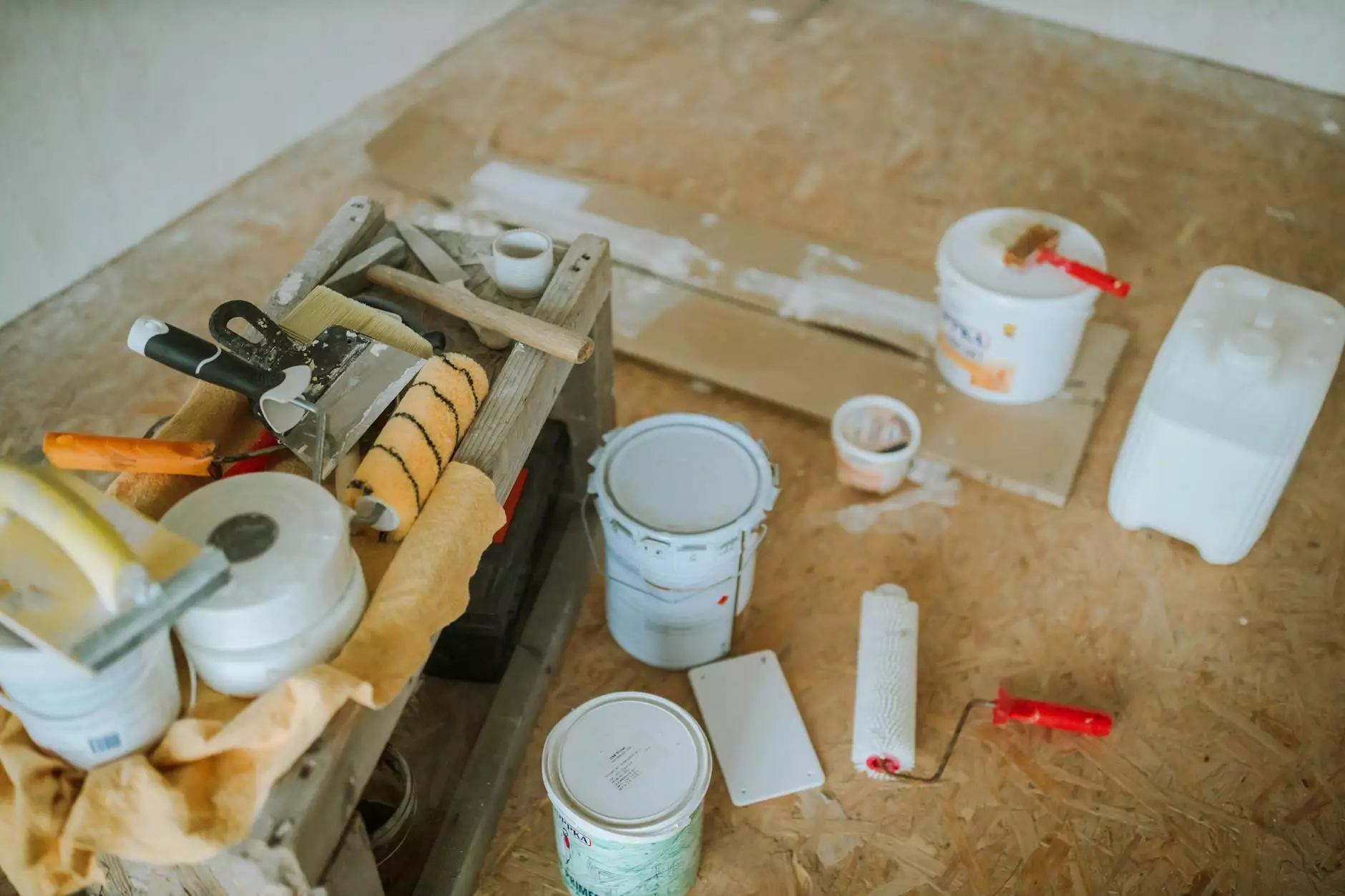The Complete Guide to Understanding Complete Kitchen Renovation Cost

When it comes to home improvement, one of the most significant investments you can make is in your kitchen. A well-planned kitchen renovation can not only enhance the aesthetic appeal of your home but also increase its market value. However, before diving into such an important project, it's crucial to understand the complete kitchen renovation cost and what factors contribute to it.
Factors Influencing Complete Kitchen Renovation Cost
The cost of a complete kitchen renovation varies widely based on several factors. Let’s take an in-depth look at what can impact your budget:
1. Kitchen Size
The size of your kitchen is one of the primary determinants of the total renovation cost. Larger kitchens typically require more materials and labor, leading to an increased budget. On the other hand, smaller kitchens may allow for more affordable updates, but they still can be costly depending on the choices made.
2. Quality of Materials
The selection of materials plays a crucial role in the overall cost. High-quality countertops, cabinetry, and flooring can significantly enhance the kitchen's appearance and durability but come at a premium price. It's essential to strike a balance between aesthetics and budget.
3. Labor Costs
Labor costs can vary depending on your location, the complexity of the project, and the expertise of the contractors. In metropolitan areas, labor rates might be higher due to demand. Hiring seasoned professionals often ensures higher quality work, but it's important to factor labor costs into your complete kitchen renovation cost.
4. Scope of Renovation
- Cosmetic Changes: Simple updates like painting, new hardware, or changing light fixtures.
- Structural Changes: Moving walls, changing layouts, or installing new plumbing and electrical systems.
- Full Remodels: Complete overhaul involving all aspects – cabinets, layout, appliances, and finishes.
Each category significantly influences the overall cost, with full remodels usually requiring the highest investment.
5. Appliances and Fixtures
Upgrading your appliances can substantially increase the complete kitchen renovation cost. High-end appliances often come with features that enhance functionality and energy efficiency but at a higher upfront cost. Consider your cooking habits and choose appliances that align with your lifestyle while still being mindful of your budget.
6. Design Fees
Many homeowners opt to hire kitchen designers to help with layouts, materials, and overall aesthetics. While this can add to the initial cost, the expertise can save money in the long run by optimizing your space effectively and preventing costly mistakes.
Budgeting for Your Kitchen Renovation
Setting a realistic budget is crucial for any renovation project. Here are steps to help you create a strong financial plan:
1. Establish Your Priorities
Before diving into costs, determine what aspects of the kitchen are most important to you. Are you looking primarily for aesthetics, or is function more of a concern? Identifying your top priorities will help in allocating your budget efficiently.
2. Research Costs
Gather information about the costs associated with the materials, labor, and fixtures you're considering. Websites, magazines, and discussions with professionals can provide a realistic baseline for your planning.
3. Consider Hidden Costs
Renovation projects often come with unforeseen expenses. Structural issues, plumbing updates, and electrical work might not be evident until the project begins. Always set aside about 10-20% of your total budget to cover these unexpected costs.
4. Get Multiple Quotes
When you're ready to bring in contractors, ask for estimates from several companies to get a comprehensive view of the potential costs. Compare their services, past work, and client reviews to ensure you’re making a well-informed decision.
Maximizing Value in Your Kitchen Renovation
To ensure you get the best return on your investment, consider the following tips:
1. Focus on Layout
A functional kitchen layout is essential. Utilize the kitchen work triangle principle, which optimizes the workflow between the stove, sink, and refrigerator. An efficient layout can improve usability without substantial additional costs.
2. Invest in Durable Materials
While it can be tempting to cut corners on materials, going for durability can save money in the long run. Cheaper options may need replacement sooner, increasing future renovation costs.
3. Choose Timeless Designs
Opt for classic designs and colors that stand the test of time. Trends can quickly become outdated, and selecting neutral palettes and traditional styles can help maintain your kitchen’s appeal for years to come.
The Advantages of Kitchen Renovation
Investing in a kitchen renovation is not just about spending money; it’s about making an investment in your home that reaps numerous benefits:
- Increased Property Value: A modern kitchen can significantly increase your home's market value.
- Improved Functionality: A kitchen renovation can make your space more functional and convenient, enhancing your cooking experience.
- Energy Efficiency: Upgrading appliances and fixtures can lead to reduced energy consumption, saving you money in the long run.
- Aesthetic Appeal: A fresh, modern kitchen can positively impact your lifestyle and satisfaction in your home.
Timeline for Your Kitchen Renovation
Understanding how long your renovation may take can help you plan accordingly. Generally, a complete kitchen renovation may take anywhere from a few weeks to several months, depending on the complexity of your project. Here’s a rough breakdown:
1. Planning Stage (2-4 Weeks)
This phase includes design consultations, material selection, and budgeting discussions. This is a crucial step where major decisions are made, so take your time!
2. Demolition (1-2 Weeks)
Removing old fixtures, cabinets, and appliances can take about a week or two, depending on the kitchen size and the complexity of the existing structure.
3. Construction and Installation (4-8 Weeks)
The most time-consuming phase involves structural changes, installation of cabinets and countertops, and connecting plumbing and electrical systems.
4. Finishing Touches (1-2 Weeks)
Painting, installing backsplashes, and minor adjustments typically take a week or two, culminating in the final walkthrough and project completion.
Conclusion
Embarking on a kitchen renovation is a significant commitment, both emotionally and financially. Understanding the complete kitchen renovation cost and all its influencing factors can help you make informed decisions, minimize surprises, and maximize the return on your investment. With careful planning and the right execution, your dream kitchen is well within reach. Whether you aim for a simple makeover or a full-on renovation, remember that each step is crucial in creating a space that not only serves your culinary needs but also reflects your personal style. Start your journey with Kitchen Makeovers, where we can guide you through every phase of your kitchen transformation!



